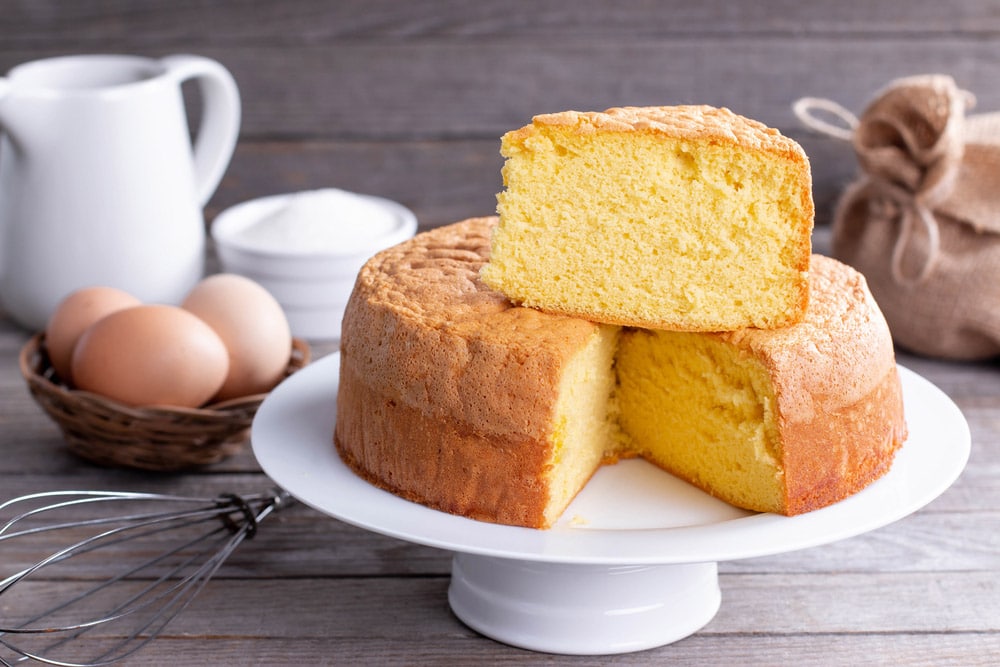
For anyone who has baked cupcakes or cakes at least once in their life, they would know that eggs are an important ingredient. Still, not everyone is clear how the number of eggs affect a cake. In that case, we have provided valuable information that will answer your questions.
In addition to the number of eggs, we’ve also shared information about how the egg whites and egg yolks will impact the cake’s texture and taste. So, let’s dig in!
How Does the Number of Eggs Affect a Cake?
Impact of Egg Yolks
The yolks are responsible for adding flavor, fat, lecithin, and obviously the proteins into baked goods. If you add extra yolks to the cake batter, it will have higher liquid content, demanding a higher sugar content.
With that being said, the cake will be sweeter, and it will be incredibly moist. Even more, the structure of the cake will be well-designed rather than the gooey mass that everyone rolls their eyes at.
Impact of Egg Whites
When you take out the egg whites and whip them up separately, it creates a foamy texture that’s responsible for leavening the cake. If you add the yolks and whites separately, but in the same proportion, the cake will have a softer texture.
However, if you add too many egg whites, it can make the cake dry. On the other hand, if the structure of the cake doesn’t look good, adding egg whites would prevent it from flopping.
Number of Eggs
- Consistency of the Batter
Before telling you about the potential impact of the number of eggs on the cake, we would like to say that there is no right or wrong amount to add. With this being said, the number of eggs in the cake will determine how thick or thin the batter will be.
So, cakes that are made with eggless batter tend to have a thick consistency. On the other hand, using four eggs in a five-inch cake tin will result in a thinner consistency but with a golden color.
- Taste
The number of eggs tend to impact the taste of baked goods as well. The cake with eggs was more like a baked custard or pudding. However, with eggless batter, the cake will have a raw flour taste.
As mentioned before, the more eggs you use the more sugar you need in your batter. This results in sweeter baked goods.
- Structure
The number of eggs used directly influences the structure of a cake. For instance, an eggless cake tends to be more compact and denser with a thin/short layer.
However, there will be no structural integrity and the cake won’t even cut properly. On the other hand, a cake made with three eggs will have a taller size with a light texture that’s spongy.
- Moisture
Eggs have 75% liquid content so they can add more moisture to cakes. But this will also depend on which part of the egg you use. Egg yokes make cakes soft inside so they’re perfect for lava cakes. But if you want cakes with more sponge and bounce then you’ll need more egg whites.
Why Use Eggs in Cake?
Eggs are nutrient rich because they contain protein, iron, fat and carotenoids. The purpose of eggs in baked goods is to provide richness, structure and leavening. It also adds color and flavor to baked goods.
The height and texture of a cake is determined by the ratio of eggs and flour you use in your batter. A combination of eggs and flour provide strength to the cake while sugar and fat add moisture.
How Many Eggs to Use in Different Types of Cake
- Sponge Cake
To make a light and fluffy sponge cake you’ll need 8 eggs depending on the size of the cake. You’ll need to separate the eggs from the yoke to get a lovely spongy texture. Typically the egg yolks are whisked into the batter and then the egg whites are folded gently with the batter to create the sponge.
- Lava Cake
For a creamy lava cake you’ll need two whole eggs and two egg yolks. The two extra egg yolks add richness to the cake and more creaminess to the center of the cake. You can save the left over egg whites to make a meringue to go with the cake.
- Pound Cake
Pound cake is made with a pound of each of the four main ingredients:
- Flour
- Egg
- Butter
- Sugar
This means you’ll need at least 6 to 9 eggs that equal to a pound to make this cake. Some people use 6 whole eggs and 6 egg yolks to keep the crumb of the cake moist. It also gives the cake a more custard-like flavor.
Avoid using extra egg whites in the cake because it will make the crumb too light. This is a dense cake so you don’t want it to crumble when you cut into it.
Carrot cake is another dense type of cake. But that’s because it includes nuts, spices and grated carrot. To help bind the carrot to the batter, you’ll need four whole eggs for this recipe.
The eggs also add moisture to the cake so that it doesn’t become too dry. For this type of cake you don’t separate the egg yolks from the egg whites.
Final Thoughts
When you change the number of eggs in the cake batter, the properties will change as well. The bottom line is that lesser egg count will make the cake compact, and the holding capacity will be impacted. With extra eggs, the texture will be spongy.
One needs to know the right number of eggs that optimizes the structural integrity and texture of a cake. Lastly, if you don’t have eggs in your house you can substitute them with yogurt or buttermilk.
Use 60 grams of buttermilk or yogurt for each egg that needs to be replaced. However, it should be noted that this can change the flavor and consistency of your cake.
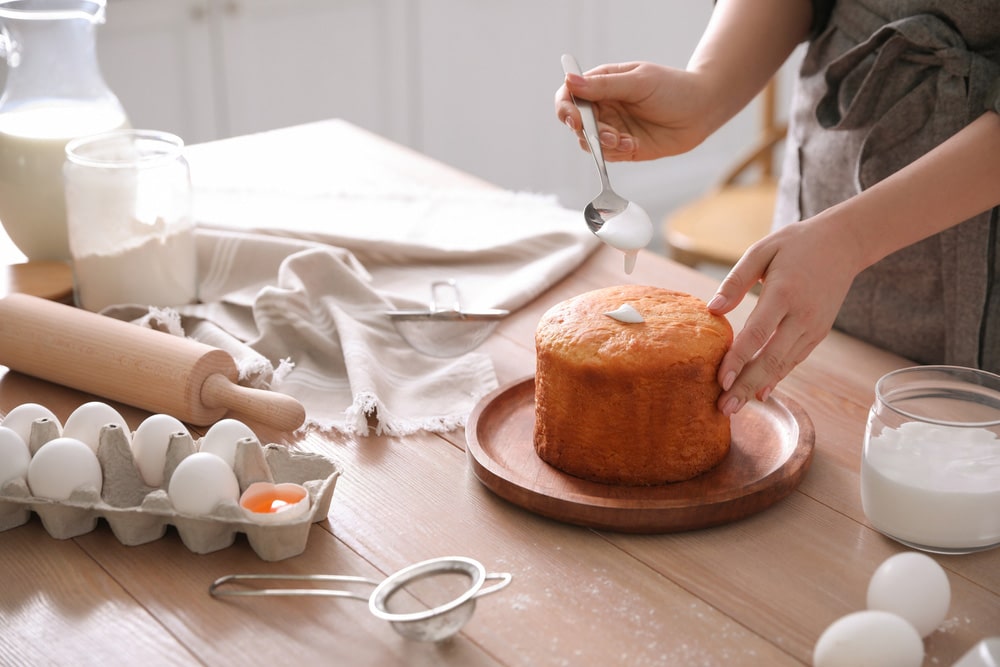
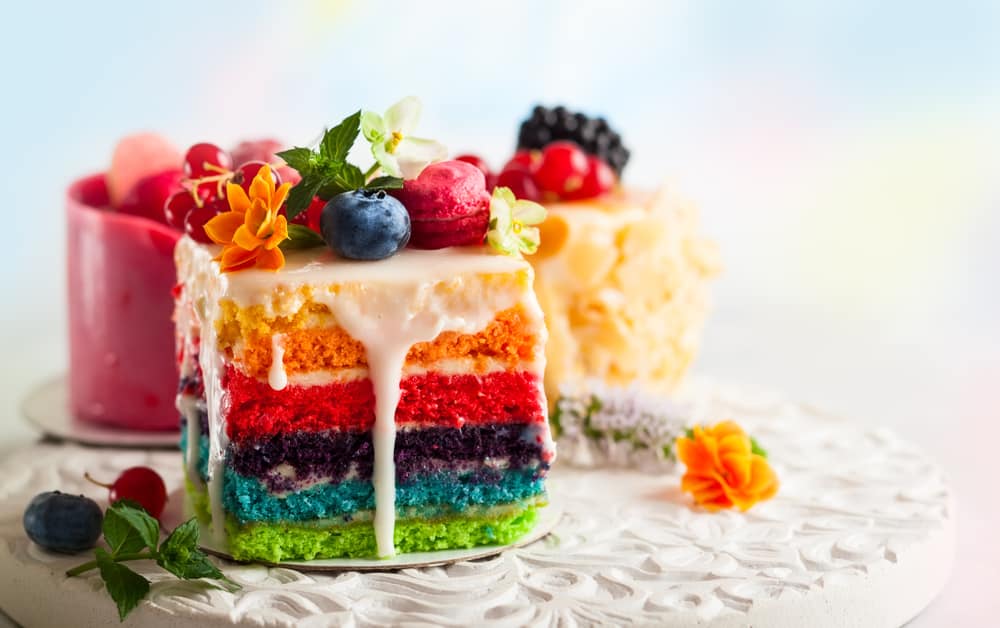
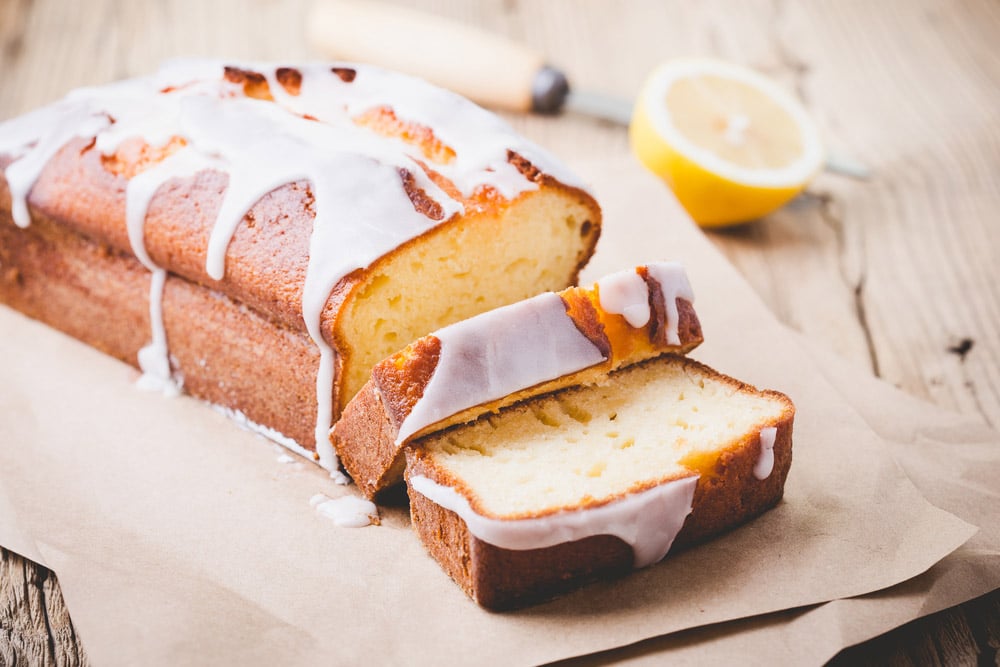
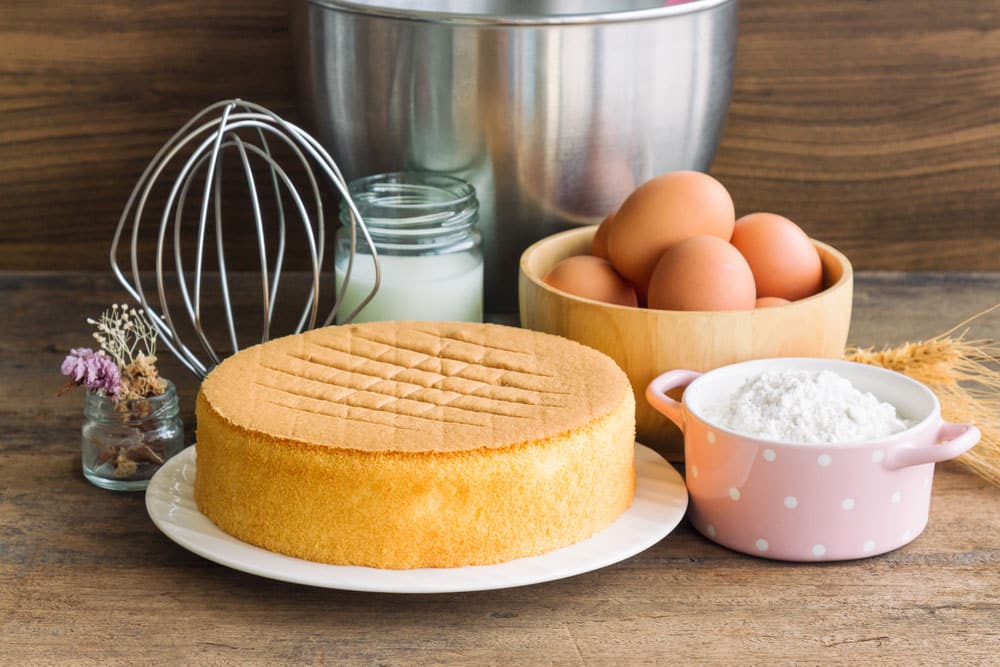
Interesting article, my thanks for for the information you’ve provided. I can see some experiments coming up lol.
THANK YOU SOO MUCH FOR THE INFO IT REALLY HELPED ME !!!!